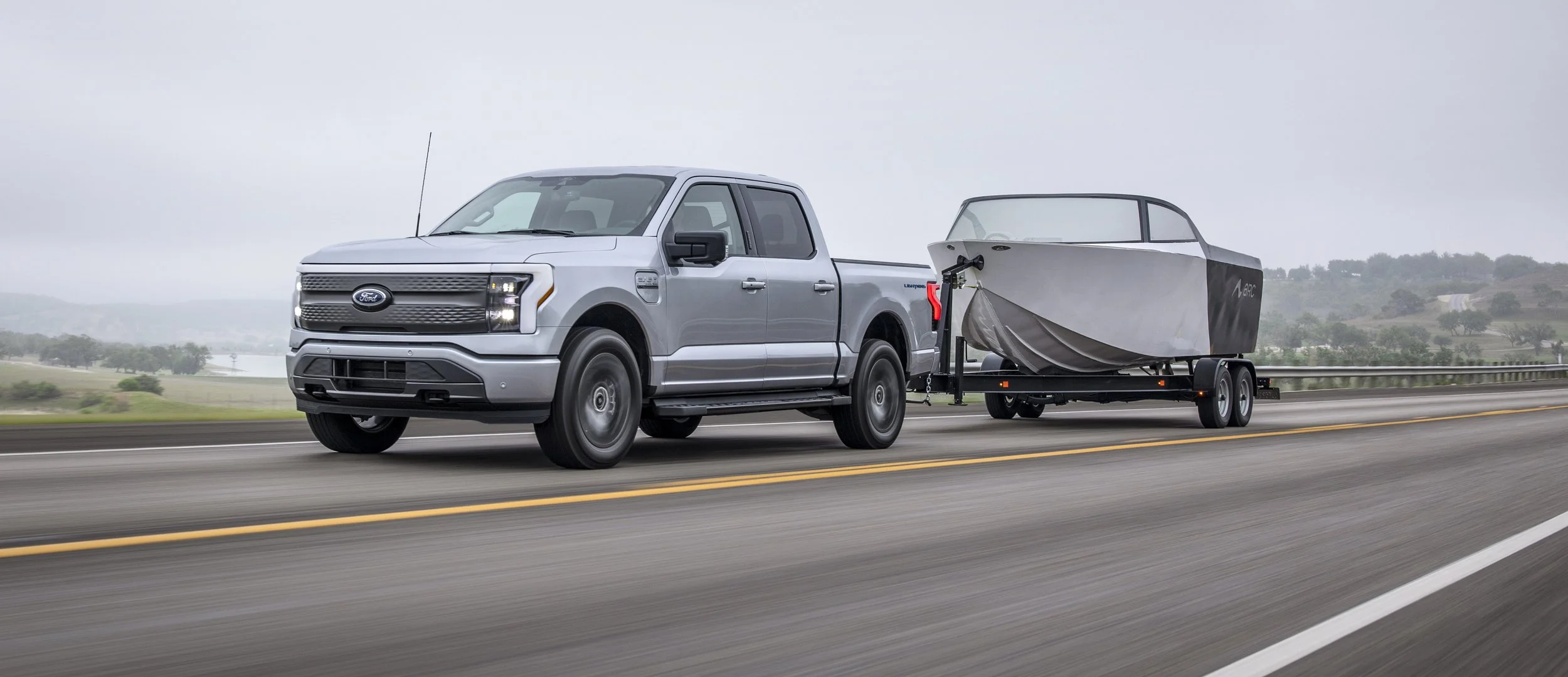Hammering with a Wrench: The Evolution of EV Trucks
By Edward A. Sanchez — Aug. 15, 2022
With the Ford F-150 Lightning and Rivian R1T on the market, soon to be joined by the Chevy Silverado EV and Tesla Cybertruck, the era of modern EV trucks is upon us in earnest. However, as is often the case, the pioneers in the field are often criticized for not meeting lofty, sometimes unrealistic expectations. The promise, as well as the shortcomings of current EV technology, is being laid bare by its application in trucks. Namely, range degradation while towing or hauling heavy loads.
Certainly, this phenomenon is not unique to EVs; internal-combustion trucks, whether gasoline or diesel, also experience increased fuel consumption and decreased range under load than they would unladen. However, the effect is exacerbated in EVs, which are still at a significant volumetric efficiency disadvantage to ICE vehicles in terms of potential energy by volume.
The key difference being is with liquid hydrocarbon fuels, once burned, the physical medium of the energy carrier (aside from the tank itself) is consumed as well, whereas with batteries, the only “consumed” resource is literally energy in its purest sense. The storage medium remains (anodes, cathodes, electrolytes), but shifts in form somewhat during the energy discharge process.
Want to haul items in the truck bed and maybe go off roading? EV trucks like the Rivian R1T will certainly do the job. (Image courtesy Rivian)
Regardless, current battery technology is at an undeniable disadvantage relative to liquid hydrocarbons, with one gallon of gasoline containing 33.7 kWh of potential energy, and a gallon of diesel packing an impressive 40.7 kWh. To contain 120 kWh of energy, a battery pack will weigh over 1,000 pounds. That much energy in the weight of diesel fuel is a mere 21 pounds. The other unfortunately unavoidable reality is that with EVs, you’re carrying around that weight constantly, regardless of state-of-charge. Yes, there is a minute difference in weight between a fully charged and expended battery, but hardly significant.
So this gets back to the scoffers and skeptics that like to throw shade on EV technology and say that EV trucks are a joke, because they can only go such a short distance between needing to charge, that the charge time takes too long, and that most chargers are not pull-through, which makes charging that much more challenging with a trailer.
All of those are valid criticisms.
EV pickup trucks like the Ford F-150 Lightning are capable of towing, but there are unfortunate limitations that go hand-in-hand with the deed. (Image courtesy Ford)
EV trucks have a long way to go before the die-hard fans of gas (and predominantly diesel, in the HD market) are willing to trade in their CO2-belching dinosaurs for a clean-running EV replacement. I don’t blame them. With current technology, relatively limited range, and rudimentary-at-best charging infrastructure in most regions of the U.S., especially in regard to pull-through charging, EV trucks are a hard sell for those who tow with their trucks.
Even Ford CEO Jim Farley, one of the biggest boosters of EV trucks, admitted that they might not be the best fit for all use cases in a video interview with Sandy Munro, in which he said, “If you’re towing 10,000 pounds, maybe not. But maybe, depends on the range you want.”
Exponential improvements in energy density, charging time, charging infrastructure, and cost reduction will need to happen to make full-EV HD trucks an enticing proposition to buyers. Will that day come? Certainly. But it won’t be immediate. And even as EV advocates and supporters, we should be honest and candid about the limitations of current technology, rather than trying to use a wrench as a hammer with a “one-size-fits-all” approach.
(Main image courtesy Ford)
- Store - Podcast - Facebook - Google News - Twitter -










